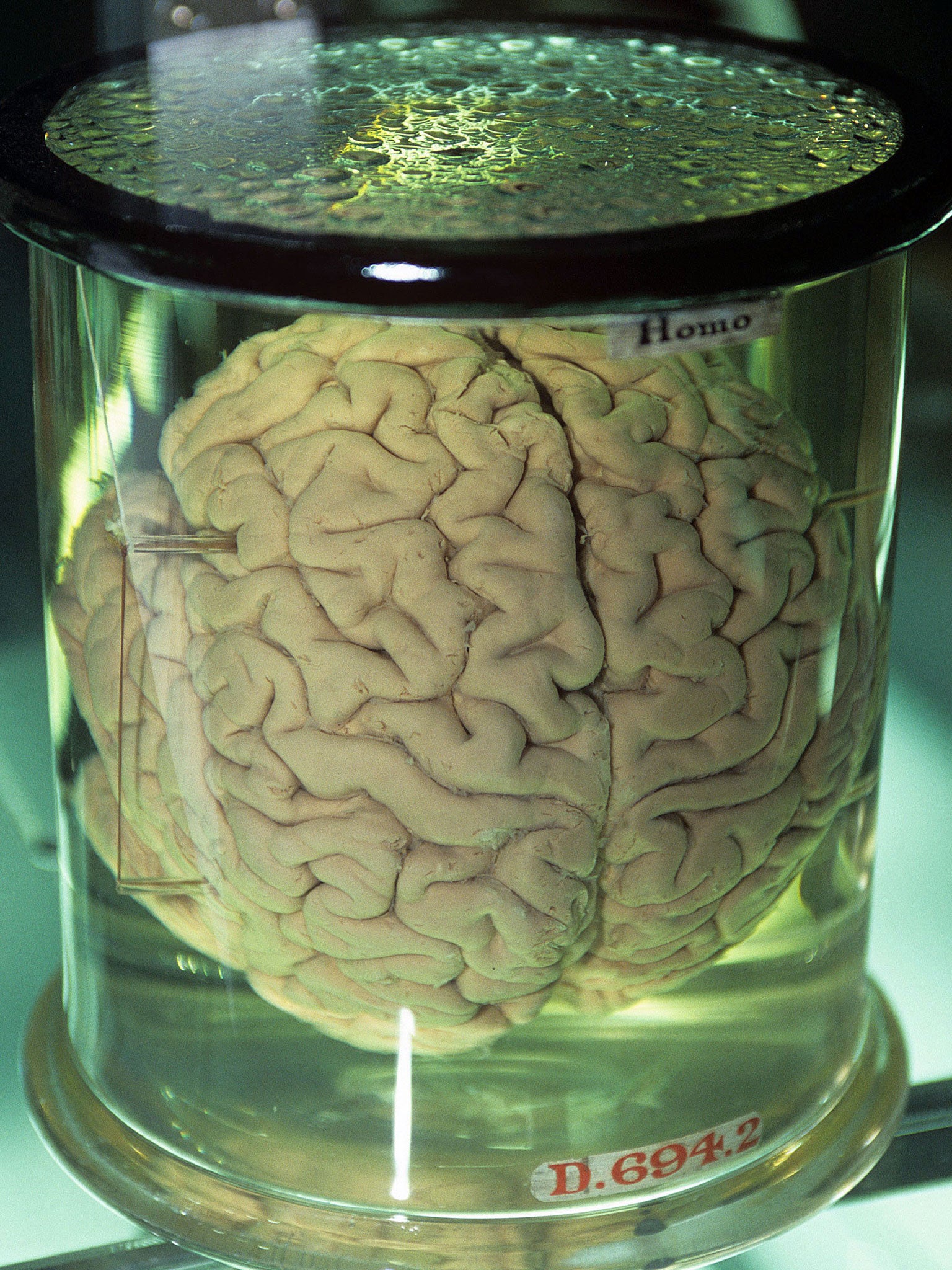Indianapolis man arrested in police sting - for stealing human brains and auctioning them on eBay

Your support helps us to tell the story
From reproductive rights to climate change to Big Tech, The Independent is on the ground when the story is developing. Whether it's investigating the financials of Elon Musk's pro-Trump PAC or producing our latest documentary, 'The A Word', which shines a light on the American women fighting for reproductive rights, we know how important it is to parse out the facts from the messaging.
At such a critical moment in US history, we need reporters on the ground. Your donation allows us to keep sending journalists to speak to both sides of the story.
The Independent is trusted by Americans across the entire political spectrum. And unlike many other quality news outlets, we choose not to lock Americans out of our reporting and analysis with paywalls. We believe quality journalism should be available to everyone, paid for by those who can afford it.
Your support makes all the difference.There are many inventive ways of earning a quick buck – but selling brains on eBay is perhaps a little too innovative.
According to US police, an Indianapolis man was arrested on 16 December for stealing more than 60 jars of brain tissue from the Indian Medical History Museum and selling them online.
David Charles, 21, allegedly spent a year repeatedly breaking into the museum to swipe human brains and other preserved tissues from its stores.
The museum holds the remains of about 2,000 patients, who were autopsied between the 1890s and the 1940s in what was then the Central State Hospital, for the treatment of psychiatric and mental health disorders.
According to court documents, Charles went on to sell the jars on auction site eBay via a middleman, thereby flouting the company’s policy against listing "humans, the human body, or any human body parts or products".
But his disturbing scheme began to unravel when the executive director of the museum, Mary Ellen Hennessey Nottage, received a call last month from a man in California, who claimed to have bought “six jars of brain matter” for $600 (£364), plus $70 (£43) shipping, on eBay.
The man, who is a collector of oddities, had become suspicious about the origins of the tissue when he noticed labels on several of the specimen jars.
His tip-off allowed the Indianapolis Metropolitan Police Department to trace Charles and set up a sting operation on 16 December.
With the help of the middleman, police set up a meeting at a Dairy Queen parking lot, where Charles was arrested. He faces charges of theft, marijuana possession and paraphernalia possession, according to court documents.
Whether others are facing charges is unclear.
Charles is to appear at an Indianapolis court this month in connection with the alleged theft of dozens of jars of preserved human brain tissue valued at about $4,800.
In an interview with The Indianapolis Star, Nottage expressed dismay that anyone would steal the museum’s artefacts.
“It’s horrid anytime a museum collection is robbed,” she said. “A museum’s mission is to hold these materials as cultural and scientific objects in the public interest. To have that disturbed — to have that broken — is extraordinarily disturbing to those of us in the museum field.”